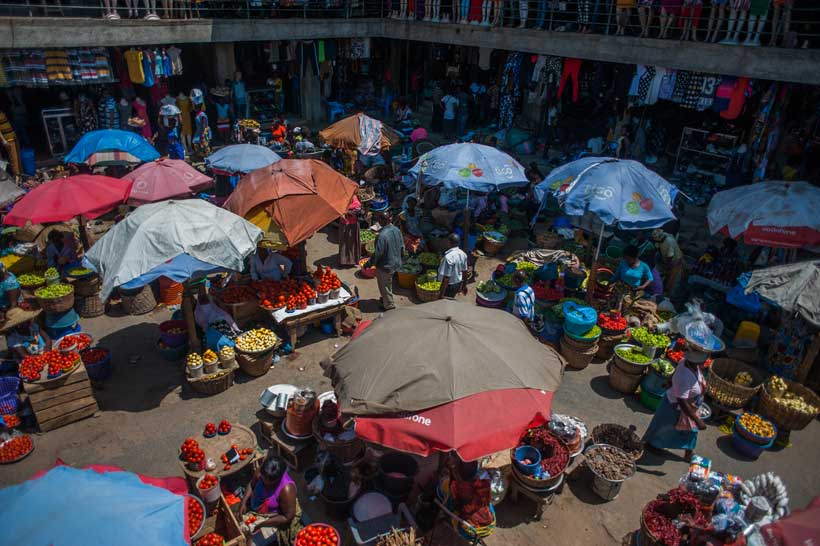COVID-19 is an overwhelming crisis that touched almost every sector. As the crisis spread up, the paradox of “life or livelihood” became visible for informal laborers in many countries. Specially, in the developing countries, where more than 2 billion people are engaged in informal sectors representing 60% of workers and 80% of enterprises (ILO, 2020). Informal Laborers refers to workers employed by formal, registered firms on a casual, day-wage basis, as well as subsistence actors such as self-employed workers. It includes street vendor, domestic worker, construction worker, transport worker, hotel and restaurant worker, migrant worker and so on.
Bangladesh is a growing economy in terms of development. Besides, it is a densely populated country. Thus, the pandemic implications outpoured into several aspects. In case of informal sector, nearly 52 million (13 million in urban areas and 39 million in rural areas) of the 61 million employed persons are employed in the informal economy which contributes more than 40 percent to GDP. The informal economy thrives mostly on daily work and daily cash, with little provisions of employment protection. In this article, we will explore the impacts on informal laborers in Bangladesh.
As the COVID-19 pandemic is a highly contagious virus, industries remained closed, economic activities was curtailed, normal movement of people became reduced. In Bangladesh, COVID-19 patient first affirmed on 8th March 2020. On 26th March, considering the rapidity of the virus dispersion, government decided to implement countrywide lockdown. As a result, the workers of informal sector faced extreme challenges to survive. The first impact on this pandemic toll was their vulnerability to contain the virus. Living in an unhealthy situation, not being aware of basic health measures of COVID-19, they were the most vulnerable to be infected by the virus. Secondly, it appeared as a devastating livelihood crisis soon. Thousands of daily labor, rickshaw puller, and transport workers become jobless overnight. A case was reported on April 16 about a 30-year-old rickshaw-puller who committed suicide because he was unable to provide food to his family during the lockdown due to lack of income. Another story of selling a child by parent due to inability pay hospital bill depicts the severity situation. Though the baby was rescued by police and returned to its parent, the incident demonstrates the impact of COVID-19 on informal laborers. According to the report, among waged workers, daily and weekly wage laborers faced much higher losses in income (49 percent) compared to salaried workers. Thirdly, such a complex crisis inflicted unrest to their psycho-social condition such as anxiety, depressive disorder, suicidal attempt etc. During a personal correspondence, a three-wheeler driver shared that his life was at stake, insomnia became common to his life. Similar experience was also shared by and RMG worker, she was sighing that “I couldn’t sleep at night fearing the future of my children”. Fourthly, it may be more specific to returnee migrant worker. They faced several dogmas, social alienation returning amid the COVID-19 pandemic. Not only that, their family also faced abnormal behavior from people in the village. The domestic workers also terminated from by their employers saying that they may bring virus as they work from home to home.
The pandemic situation is still going on. The impacts mentioned over can be analyzed in terms of economic fall down, social construction and public policy perspective. But, unfortunately it depicts the situation of less focused population of the country. It also demonstrates that the economic aspect of the crisis brought an unequal suffering. The poverty rate in Bangladesh was around 40% in 2015 and now in 2020, because of this crisis, the poverty rate goes up to 41%. If the crisis continues, the poverty rate will increase further. Along with the poverty increase, the drop of children from school, child marriage, crime, social conflict etc. are the other facet of the implications.
Though the stimulus package by the government was enormously supported industries, small and medium enterprises, informal laborer were left behind. There was an initiative to make direct cash transfers to 5.0 million people, an allegation of corruption and mismanagement was over there. To gain a sustainable solution to this crisis, an inclusive approach should be initiated. Emphasizing on social safety measures, ensuring public health wellness, constituting rights of informal laborers are some basic components in this regard.


